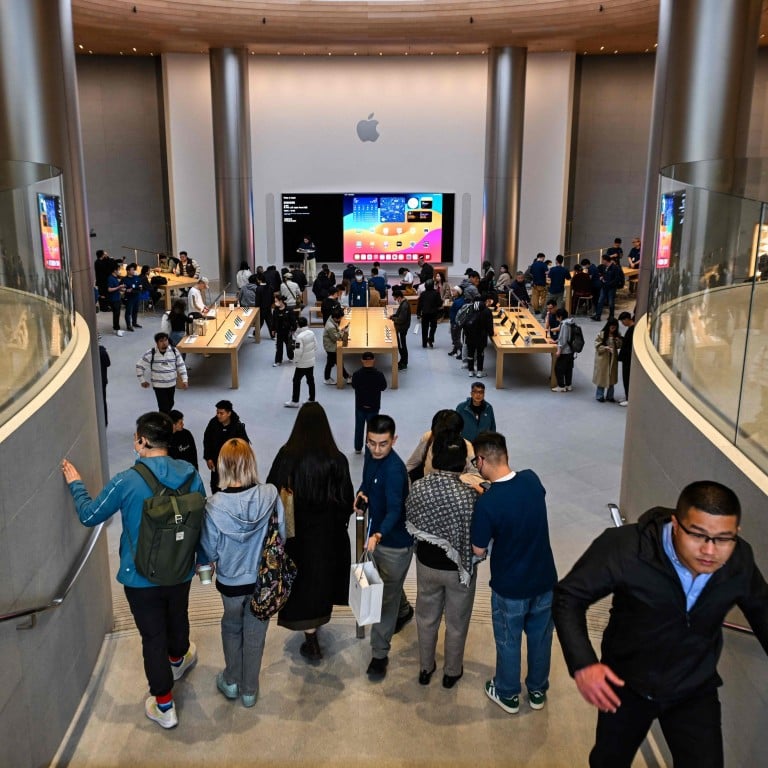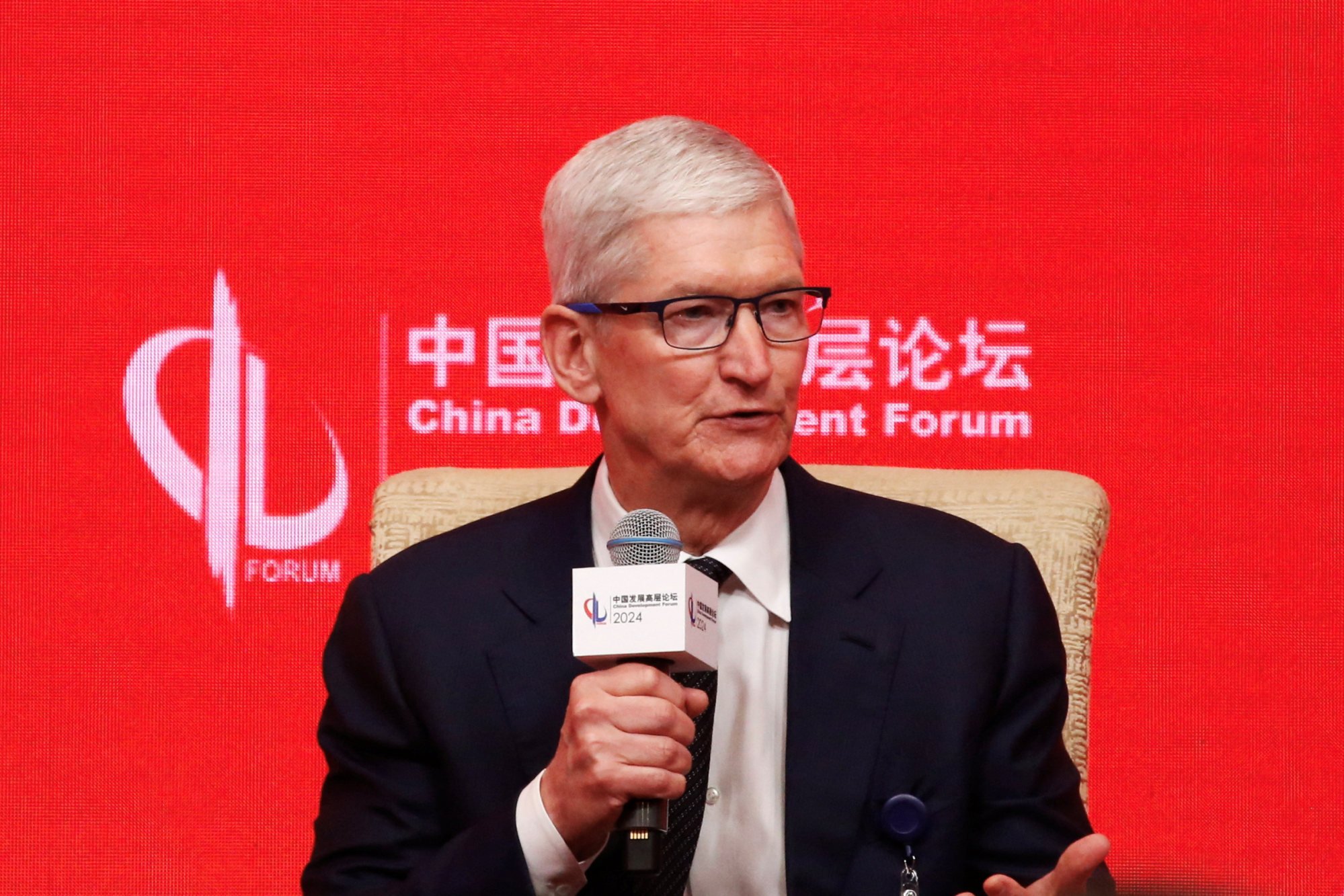
Apple’s iPhone shipments slumped in February, highlighting why CEO Tim Cook went on a charm offensive in China
- While Apple remains committed to the Chinese market, the US consumer electronics giant is facing regulatory and competitive headwinds
- Official data showed that foreign brands – mostly Apple – shipped about 2.4 million smartphones in February, for a combined 16.9 per cent share of the market
Apple’s iPhone shipments in China fell by about one third in February from a year ago, according to official state data released Tuesday, a sign that the US tech giant is losing ground to Chinese smartphone brands in the world’s second-largest economy.
Apple chief executive Tim Cook visited Shanghai last week in an apparent charm offensive to improve relations with Chinese consumers, suppliers and local authorities.
US sues Apple in landmark iPhone monopoly case
While Apple remains committed to the Chinese market with its large base of Apple fans, the US consumer electronics giant is facing regulatory and competitive headwinds. There have been anecdotal reports that some Chinese government agencies and offices have banned the use of iPhones, even though the Chinese government has denied the existence of such regulations or policies.
China’s official data showed that foreign brands shipped about 2.4 million smartphones in February, for a combined 16.9 per cent share of the Chinese market. Given that Apple is the most significant foreign player in the country, it translates into a drop of about one-third from the prior month.
In January, Apple shipped about 5.5 million units, down 39 per cent year on year, according to data from the China Academy of Information and Communications Technology, a Chinese government-backed think tank.
The iPhone maker said on Tuesday that it plans to unveil its long-awaited artificial intelligence (AI) strategy at its annual Worldwide Developers Conference which starts June 10. Apple is expected to launch major software updates for all its smart devices, and outline a new AI strategy based around the iOS 18 upgrade.
Apple has tried to turn the tide of declining shipments of iPhones in the Chinese market by reassuring its commitment to long-term development in the world’s second-largest economy.

Chinese sales of the iPhone fell by nearly a quarter in the first six weeks of 2024 over the same period last year, ranking the US firm fourth after Vivo, Huawei and Honor, according to data from Counterpoint Research.
Huawei Technologies was the biggest winner, posting a 64 per cent jump in sales for the six week period, driven by strong demand for its flagship 5G Mate 60 Pro smartphone with a powerful home-grown chip.

